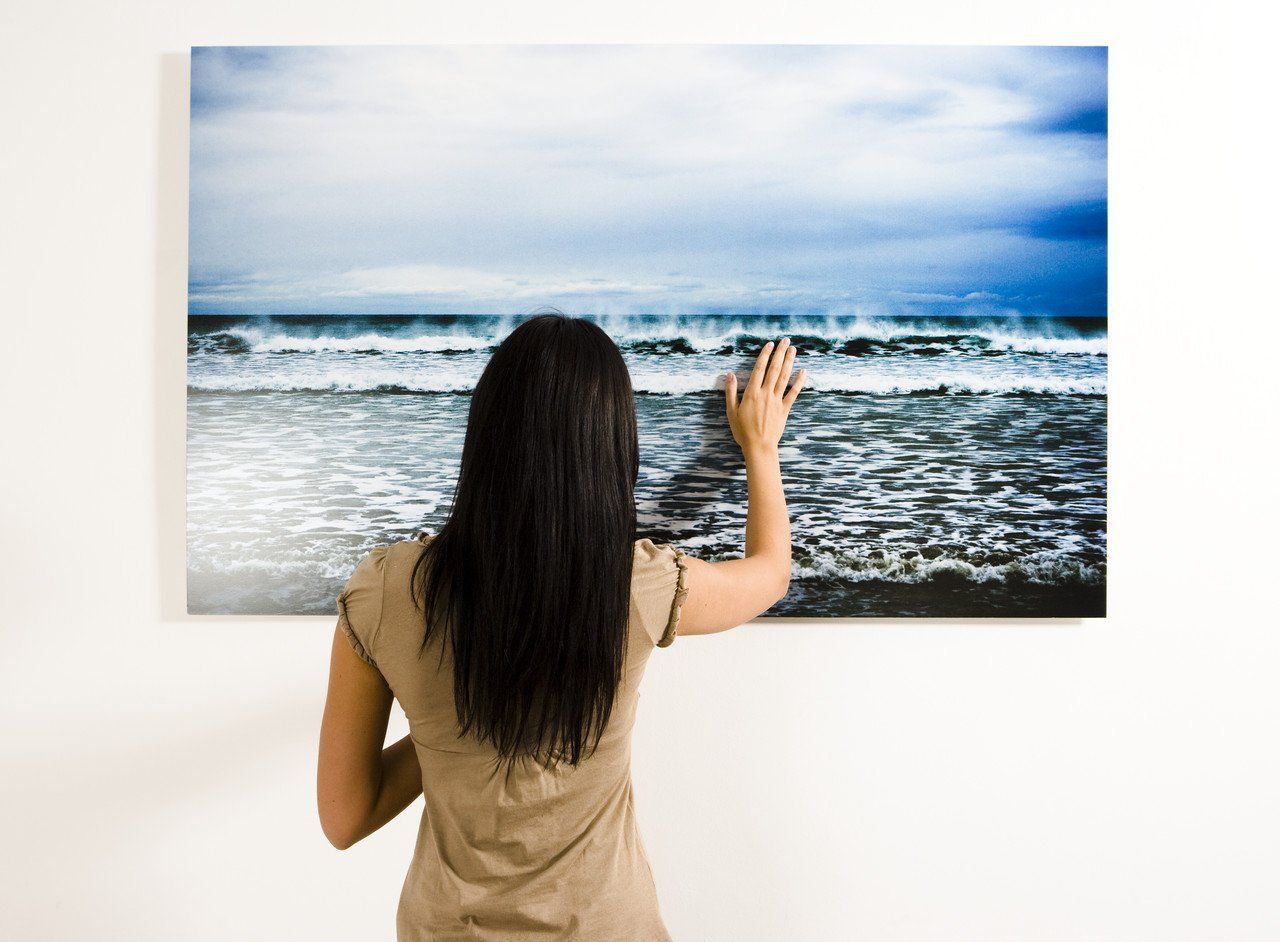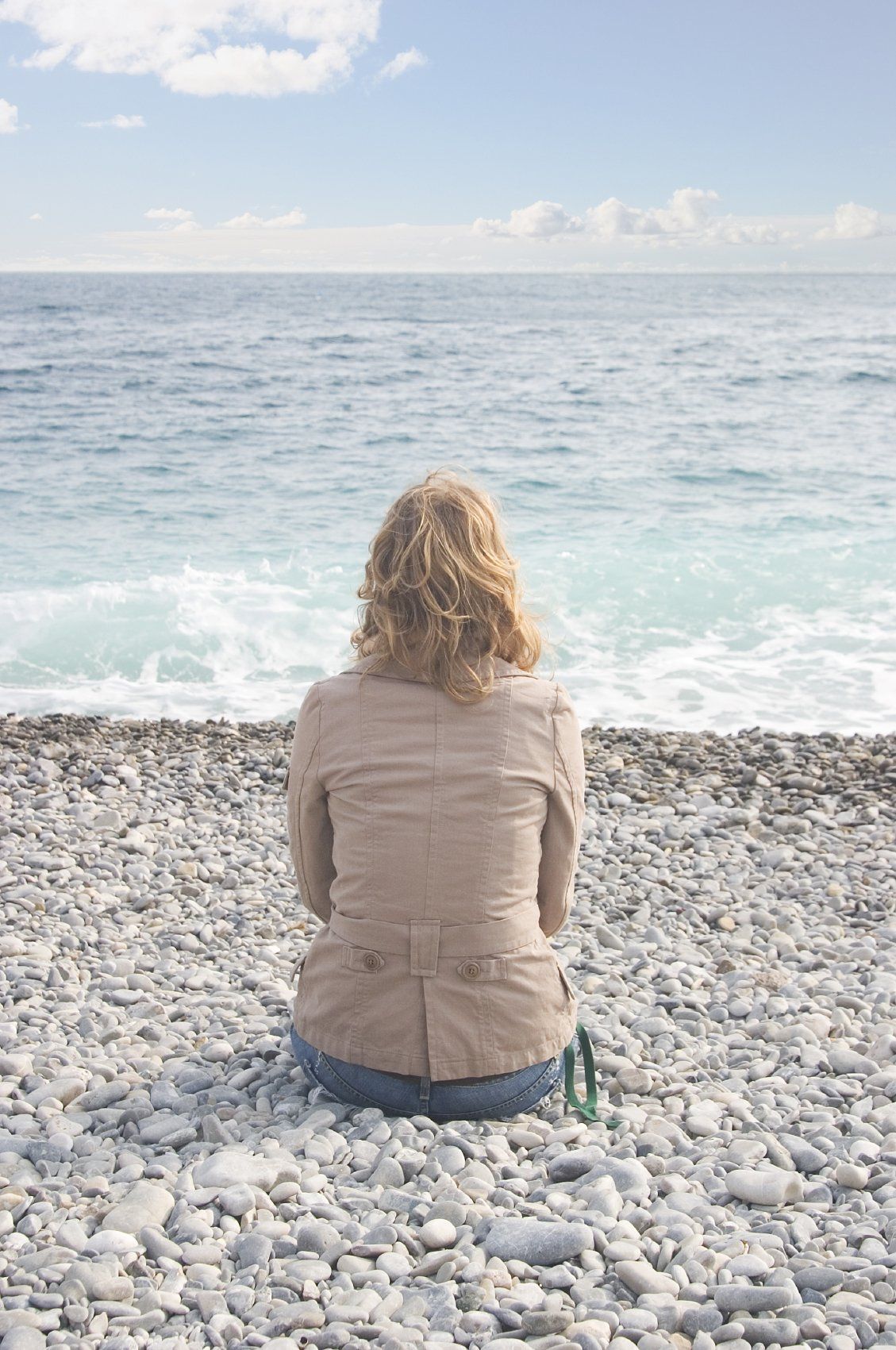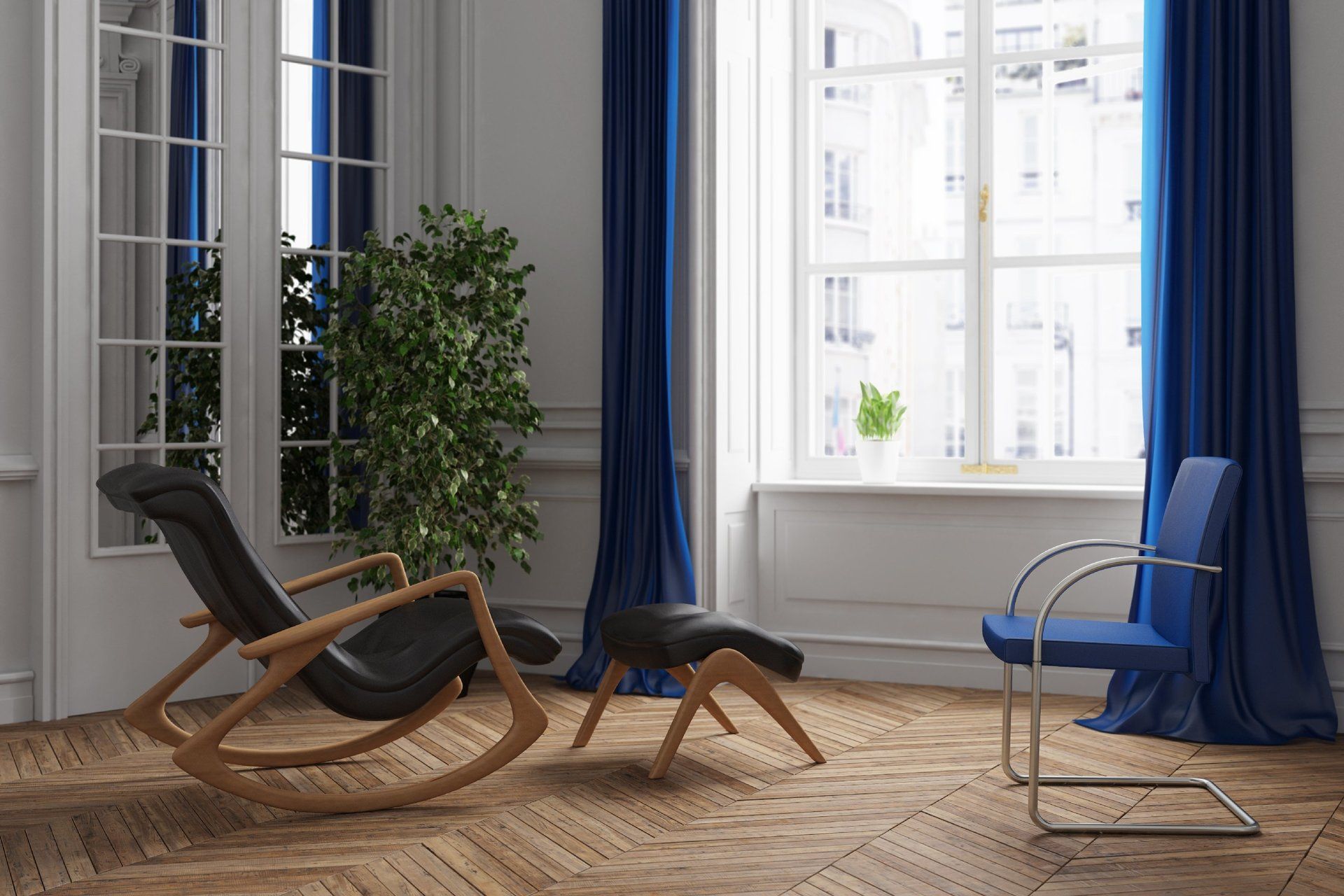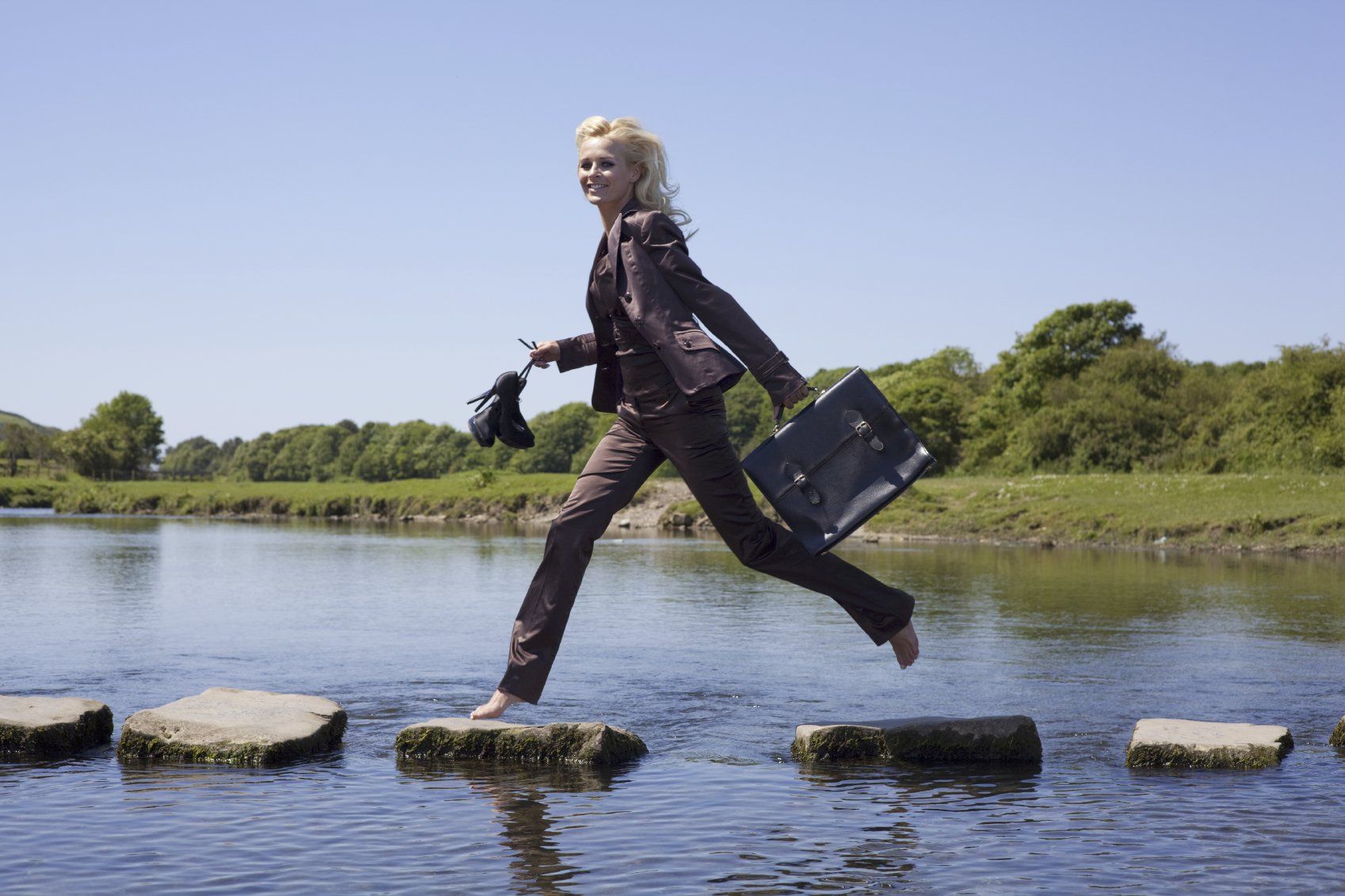Be Yourself
Uta-Sophie Hobohm • 19. Februar 2020
"Don't keep walking forever on public roads leading only to where others already have gone." Alexander Graham Bell
The phenomenon that is defined as "stress" has many faces. It´s symptoms, the effects on ourselves and our environment, the interactions between work and private life, so-called spillovers, are as individual as we are. Our resources and coping strategies in order to avoid or reduce the effects can differ in a wide range. There are many influencing factors that science has analyzed, e.g. personality factors such as optimism or resilience or also factors from our development and upbringing, i.e. the influence that our parents and other caregivers had and have on us and much more. For this reason, there is no ONE way to deal with stress.
For some, a red traffic light or a traffic jam on the highway triggers a rapid heartbeat, headache or feelings of restlessness, for others it is a way to calm down, turn up the music, listen to news or make calls (with hands-free system - of course ..). In many cases the problem is time pressure, which we very often expose ourselves to. We believe that we have to meet other people's expectations of us. Harmony in social relationships is an important motivating factor for this.
It is not a question of not having time, but of taking it. One way would be integrating it explicitly into our weekly schedule. Here we can outsmart ourselves. Check out your appointments for next week and look for (even small) gaps.
Next step would be thinking about what you would like to do, where you can let go of problems and stress, what will clear your head, what makes you feel comfortable? Write this down in the schedule for next week as a fixed date and look forward to it. Don't have a guilty conscience, either before, at, or after this activity. Time for ourselves is so important to recharge our batteries, to be more balanced and to feel good with ourselfs.
This positively influences the reward center in the brain and ensures that you feel comfortable and energetic. Enjoy your little breaks consciously! Perhaps you will only integrate small actions in your schedule in the first week because the week is already too busy or you feel unsure whether you are “permitted” do it. Don´t worry, start with small steps. If you do this consistently every week, you will become more and more secure and will consciously create more freedom for yourself.
Here are a few small suggestions:
- cycling to the beach / lake
- walking / hiking
- swimming, sailing, surfing, playing soccer / handball / volleyball
- Asian martial arts
- climbing / mountain hiking
- Gym
- with a good book on the couch / on the balcony / in the garden / in the park
- meet friends
- have a nice evening with your partner, your family
- shopping
- sauna / wellness
- relaxation lessons: Yoga, PMR, Autogenic Training, Breathing techniques
- short breaks / trips with the family, alone, with friends
- cinema / theater / concert / exhibitions
- stroll through the city
- have a coffee / go out for lunch or dinner
Even though some points seem banal to you, when was the last time you have done it? Honestly?
Enjoying activities that makes you feel comfortable enhances the unconscious experience of relaxing, focussing inward, deeply in- and exhaling and recharging your batteries. Therefore it is so important that you prefer activities, you love to do and have fun with. Something that brings you into the state of “Flow”.
The first step is always difficult, especially if occupation and private life leave us little time for ourselves. If you take better care of yourself and integrate regular little breaks for yourself, you can better cope with stress and problems. This also benefits your private life and your job. Listen to the inner voice and permit yourself to enjoy the activities you love. Of course this is very individual for everyone. That is the reason why it is so important to find and strengthen your own resources in order to enhance your individual coping mechanisms.
Of course, it is also important to find and reduce the other side of the stress scale, the stressors. In addition, use your own methods that can help to change and strengthen personal characteristics and strategies that are necessary for coping with your stressors and their effects.

Stress, körperliche Beschwerden, Anspannung, gelegentliche Stimmungstiefs: kein Grund sich Unterstützung zu holen. Kennen Sie das? Reif für die Klinik sind Sie mit Sicherheit noch nicht. Sich Unterstützung holen? Um Himmels willen, das schaffen Sie natürlich alleine! Solche Gedanken kennen Sie wahrscheinlich. Viele Menschen suchen sich erst psychologische Unterstützung, wenn der seelische Schuh schon so richtig drückt.

Who knows that? Longed for a time off at your dream destination, that you literally “worked out” your vacation? And as soon as you have arrived, at the holiday resort or, which many have probably considered this year, on balconies, in the garden or in your own environment, things start to get worse. Your partner doesn't want what you want. He/she blames you. The children are annoying. Interests clash. And you are wondering whether such a vacation alone would not have been a worthwhile alternative? Stop! Your vacation doesn't have to end like this! What can help? Communication! "Communication ???" you ask yourself? Yes exactly! As Paul Watzlawick used to say: "You cannot NOT communicate". Why that? You may be asking "I'm telling him / her what annoys me". And this is exactly the sticking point. We are used to constantly judging people and telling them what we don't like about them. How about another variant? The American psychologist Marshall Rosenberg, who developed the concept of nonviolent communication, suggests that one should be impartial and respectful to the other. How it works? First of all, Rosenberg advises not to evaluate what happened. Practically, it looks like this: if your partner throws laundry on the floor, instead of putting it in the suitcase or closet and you tell him "You ALWAYS throw your laundry on the floor", he or she will probably start a counterattack . You will surely have to listen tothe reply, that you are again a nagging, nagging nervous aunt or a lousy peter. Or that you are ALWAYS scolding. And now the exchange of blows starts and you are involved in evaluations and judgments. Rosenberg suggests not to assess the situation, but to present it in a matter-of-fact and objective manner. In our case, that would be "I see laundry on the floor." Yes, okay, but is there something missing? Yes, it is important to speak of yourself, your own perspective and your own feelings. How do I feel seeing my partner throwing the laundry on the floor? Do I feel annoyed, tense, under pressure, am I excited, angry or does it make me uneasy? And what is actually my need, which is behind the untidy room? Maybe I'm annoyed because I have a need for order. Maybe I'm also annoyed because I had a hard day and don't want to clean up the room. It would be important to remain calm and to express exactly that, my own feelings and wishes or needs. "I see laundry from you lying on the floor. I get restless from my evaluations ("He / she never takes care of me") because I have a need for order and structure in our room. Very nice! But something is still missing. What specific concerns do I have about my partner? What should he / she do, what do I wish for, what should be different, so that my need for order is met? That should also be discussed. "I would like us both to put our laundry in the closet in the morning so that we can return to a tidy room in the afternoon." And then ask your partner if it would be okay for him or her or if he / she has objections and maybe even other suggestions. "Do you agree? Do you have any other ideas? How do you feel about it? " Rosenberg also suggests asking the other person whether what I have said has been received by the other person. "How did you understand what I said?" Sometimes it is very exciting to see how the other person puts their own perceptions and evaluations in our concern! This needs to be checked. If your partner says no, he/she are likely to be prevented from doing so by his/her own important need. Maybe the vacation time is the only time he or she can start relaxed in the morning, maybe he or she would be open to put the laundry in the closet at noon or in the afternoon. Again in short: 1) First, describe the situation that led to the conflict without evaluating it. "I see laundry lying on the floor." 2) Name the feeling you had for this. "I am restless" 3) Name your need "I need order" 4) Formulate a request that contains your wish or need. "Can we clean up the room together in the morning?" "Can you put the laundry in the closet in the morning?" 5) Make sure that your concerns have been understood by others. "What did you understand?" "How did you understand what I said?" If you keep these 5 steps in mind and maybe take them into account one time or another, you are prepared for the next discussion and your vacation will be what you want it to be: relaxing, harmonious. Rosenberg recommends that you keep aware of these steps and practice "non-violent communication" regularly, ideally in any interpersonal situation, in order to learn a language free of conflict. Sometimes it is helpful to give yourself a little empathy before speaking to your partner. In the sense: "Oh no, now his / her things are lying on the floor, that makes me very fidgety, because I need more order in our common rooms to feel good." "To address the point without reproaching him / her, I hope I can make him/her unterstand my need." If you are curious, we recommend reading “Nonviolent Communication - A Language of Life” by Marshall B. Rosenberg. If you would like further information on this topic or would like to leave us a comment, please use the following form. Your comments will not be published.

Wer kennt das nicht? Lange herbeigesehnt, vor der Auszeit nochmal richtig gepowert, sodass Sie sich den Urlaub im wahrsten Sinne des Wortes förmlich „erarbeitet“ haben? Und kaum sind Sie angekommen, am Urlaubsort, fängt es an zu kriseln. Und Sie fragen sich, ob so ein Urlaub alleine nicht eine nennenswerte Alternative gewesen wäre?

Ein permanentes Gefühl der Unruhe, wenig Freude an Freizeitaktivitäten, ein veränderter Schlafrhytmus bis hin zu Schlafstörungen, Müdigkeit, Gereiztheit können die Folge sein. Sie können einfach nicht abschalten, loslassen und genießen. Dauerstress lässt sich im Urlaub nicht einfach abschalten oder verdrängen, vor allem bei Menschen, die im Allgemeinen nicht gut entspannen können.

Permanent excessive demand can result in a permanent feeling of restlessness, little pleasure in leisure activities, a change in the sleep rhythm up to insomnia, fatigue or irritability. We just can't switch off, let go and enjoy. Permanent stress cannot simply be switched off or suppressed on vacation, especially for people having general problems with conscious relaxing. Simple but effective relaxation techniques, but also conscious mental restructuring can help here.

Womit fangen wir an? Vielleicht mit den klassischen Psychologen , die Sie sicher aus Film und Fernsehen kennen. Die Couch und so… Gut, die Couch steht nur in einigen Behandlungszimmern, aber lassen wir das fürs Erste und kommen später darauf zurück. Wo waren wir stehen geblieben? Ach ja, die Psychologen. Hier geht die erste Verwirrung schon los. Es gibt Diplom-Psychologen . Die haben einen Universitätsabschluss in Psychologie. Seit einigen Jahren stürmen aber auch B. Sc.- und M. Sc.-Psychologen den Markt. Was hat es damit auf sich? So kompliziert es klingt, so war der Grundgedanke der Politik ganz einfach. Das deutsche Diplom sollte gegen zwei alternative Abschlüsse eingetauscht werden: Bachelor und Master. Im Falle der Psychologie, die zu den Naturwissenschaften zählt, in den Bachelor of Science (B. Sc.) und den Master of Science (M. Sc.). Die Abschaffung des Diploms und die Einführung der neuen Abschlüsse sollte einen internationalen Vergleich sichern. Heutzutage gibt es nicht nur viele M. Sc.-Psychologen. Nein, fast jedes universitäre Studium bildet Bachelor und Master-Studenten aus. Wie lange dauert so ein Studium der Psychologie? In der Regel sind Studenten 3 Jahre mit dem Bachelor, in dem Grundlagen der Psychologie, also der Wissenschaft vom Erleben und Verhalten der Menschen, beschäftigt. Ungefähr 2 Jahre nimmt der Master-Abschluss in Anspruch, der häufig eine Spezialisierung, zum Beispiel im klinischen Bereich, beinhaltet. Sind es denn die Psychologen, bei denen ich eine Therapie, Beratung oder ein Coaching wahrnehmen kann? Ja und nein…Es wird noch komplizierter. Ein Psychologe darf beraten und coachen, eine Therapie darf er nur mit angeschlossener Weiterbildung in Psychotherapie anbieten, das heißt wenn er Psychotherapeut oder Heilpraktiker für Psychotherapie ist. Dazu später mehr. Was machen denn die Psychologen genau? Schwierigkeiten im Verhalten der Menschen sind nur ein Teil des Studiums. Psychologen beschäftigen sich auch mit der menschlichen und persönlichen Entwicklung, mit den Fähigkeiten und Ressourcen des Menschen und mit seiner Interaktion mit der Umwelt. Sie versuchen den Menschen in seinem ganzen Sein zu verstehen. Psychologen sind oft in der Prävention tätig. Dort findet man sie in den verschiedensten Bereichen, wie beispielsweise der Arbeits- und Organisationspsychologie, Rechtspsychologie, Umweltpsychologie oder auch Gesundheitspsychologie, um nur einige zu nennen. Hierbei sollen möglichst frühzeitig schwierige Entwicklungen oder Erlebnisse für Menschen erkannt, abgefedert und die Auswirkungen möglichst reduziert werden. Prävention bedeutet damit Vorbeugung von mentalen Überlastungen, sozialen Konflikten, psychischen Störungen oder Krankheiten. Psychologen unterstützen Menschen dabei, ihre seelische Widerstandsfähigkeit (ein Konzept der Resilienz ) weiter auszubilden, damit sie leichter mit Krisen umgehen können, ihre individuellen Ressourcen erkennen, wertschätzen und weiter ausbauen. Psychotherapeuten Wenn die Psychologen mit Ihrer Beratung schwierige Entwicklungen und Auswirkungen abfedern wollen, was tun dann Psychotherapeuten? Die Psychotherapie richtet sich vor allem an Menschen, die sich aufgrund von Lebensschwierigkeiten und seelischen Leiden für eine längerfristige und intensive Begleitung entscheiden, wobei es um Hilfe zur Selbsthilfe geht. Der Psychotherapeut untersucht gemeinsam mit Ihnen welche Bedingungen in Ihrem Leben zu Ihren jetzigen Schwierigkeiten und Symptomen geführt haben. Psychotherapien durchführen dürfen a) Psychologen, die nach ihrem Studium der Psychologie eine 3- bis 5-jährige Therapieausbildung in einem wissenschaftlich anerkannten Verfahren absolviert haben ( Psychologische Psychotherapeuten) oder b) Ärzte, die sich nach dem Studium der Medizin im Rahmen ihrer Facharztausbildung auf Psychotherapie spezialisiert haben ( Ärztliche Psychotherapeuten ) Sind das nicht die Psychiater? Nein, Ärzte, die mit psychisch kranken Patienten arbeiten, werden Psychiater genannt (auch: Fachärzte für Psychiatrie ) oder Nervenärzte (auch: Fachärzte für Nervenheilkunde oder Fachärzte für Neurologie und Psychiatrie ). Sie haben in ihren Facharztausbildungen vertiefte Kenntnisse über die Entstehung und den Verlauf psychischer Erkrankungen erworben. Sie haben gelernt psychiatrische Erkrankungen zu erkennen und diese mit Medikamenten zu behandeln. Teilweise werden auch Gespräche angeboten. Falls Gespräche möglich sind, finden diese oft in einer geringeren Frequenz als bei einem Psychotherapeuten statt und dauern zeitlich kürzer an. Gespräche bei einem Psychotherapeuten dauern 50 Minuten und finden in der Regel wöchentlich, in der analytischen Therapie sogar mehrere Male die Woche statt. Auch Neurologen behandeln psychiatrische und neurologische Diagnosen. Gemeinsam ist ihnen das Studium der Medizin und die Beschäftigung mit Forschung und Behandlung des menschlichen Körpers sowie deren Funktion, Beschaffenheit sowie Krankheiten. Fachärzte haben sich zusätzlich in einer zusätzlichen Fachrichtung weiter spezialisiert. In älteren Weiterbildungsordnungen umfasst die Ausbildung zum Psychiater oder Nervenarzt noch nicht den Bereich Psychotherapie. In neueren Facharztausbildungen für Psychiatrie ist die Psychotherapie bereits Teil der Ausbildung „Facharzt für Psychiatrie und Psychotherapie“. Nice to know: die Ausbildung zum Psychotherapeuten war bisher erst nach einem Psychologie-Studium möglich, dies verändert sich aktuell. In der Zukunft kann entweder der Studiengang Psychologie oder gleich der Studiengang Psychotherapie gewählt werden. Welche Therapierichtungen bieten Psychologische und Ärztliche Psychotherapeuten an? Es gibt diverse Richtungen. Von den Krankenkassen übernommen werden jedoch nur die Verhaltenstherapie, die tiefenpsychologisch-fundierte Psychotherapie, die psychoanalytische Therapie und die systemische Therapie, sofern der Therapeut einen Kassensitz im jeweiligen Verfahren erworben hat. Viele Psychotherapeuten bieten diese Therapieformen im Kostenerstattungsverfahren oder für Selbstzahler an. Die Verhaltenstherapie geht davon aus, dass gelerntes Verhalten zu Belastungen im heutigen Erleben führt und versucht mit Hilfe von Strategien, ein neues Verhalten einzuüben und destruktive Denkmuster zu durchbrechen. Die tiefenpsychologisch-fundierte Psychotherapie nimmt das Unbewusste, die Beziehung zwischen Klient und Therapeut unter die Lupe und sucht nach Ursachen in der Vergangenheit. Im Gegensatz zur klassischen Psychoanalyse ist sie sehr viel fokussierter. Die analytische Therapie kommt wohl am ehesten dem klassischen Bild aus Film und Fernsehen nahe: häufig liegt der Klient auf der Couch, der Psychoanalytiker sitzt hinter ihm und lässt ihn frei reden (im Psychotherapeuten-Jargon auch assoziieren genannt). Da die Sitzungen mehrmals in der Woche stattfinden, liegt auch hier die Beziehung zwischen Therapeut und Klient im Vordergrund während die Lebensgeschichte des Analysanden aufgearbeitet wird. Ein Hauptgedanke der Systemischen Therapie ist, dass zur Veränderung von Problemen weniger auf die zu behandelnde Person allein fokussiert wird, sondern auf das soziale Netzwerk insgesamt. Neben Einzeltherapie wird auch mit Familien, Paaren oder Organisationen gearbeitet. Was ist mit den zahlreichen Praxen für Psychotherapie? Häufig sind hiermit Praxen von Psychologischen und Ärztlichen Psychotherapeuten gemeint, die ihre Therapien in diesen Räumlichkeiten anbieten. Aber auch ein Heilpraktiker für Psychotherapie darf eine solche Praxis eröffnen. Der Heilpraktiker hat ebenfalls psychologisches und psychiatrisches Wissen erworben. Sie integrieren häufig auch alternative Verfahren in ihre Angebote, die größtenteils (noch) nicht von den Krankenkassen übernommen werden. Diese Ausbildung verlangt jedoch kein Studium der Psychologie und dauert in der Regel 2 Jahre. Heilpraktiker erwerben ihr psychologisches Wissen häufig nicht an der Universität sondern an einer privaten Akademie und können bisher nicht mit den Krankenkassen abrechnen. Aber auch Psychologen sind häufig Heilpraktiker für Psychotherapie, da sie über ein breites Wissen psychischer Erkrankungen verfügen. Und die Physiotherapeuten? Auch wenn neue wissenschaftliche Studien zeigen, dass Körper und Geist enger miteinander verwoben sind, als man bisher annahm, so sind die Physiotherapeuten doch nicht im Bereich der menschlichen Psyche tätig. Sie kümmern sich stattdessen um unsere körperliche Funktionsfähigkeit und finden Wege für körperliches Wohlbefinden. Eine zeitgleiche Behandlung beim Physiotherapeuten und Psychotherapeuten schließt sich also nicht aus und kann für geistiges und körperliches Wachstum sehr förderlich sein. Bleibt noch der klassische Doktor: Wir sind es gewohnt, unsere Ärzte mit dem Doktortitel anzusprechen. Doch wer darf wirklich Doktor genannt werden? Klassischerweise darf sich jeder, der eine wissenschaftliche Arbeit, beispielsweise in der Forschung, an einer Universität eingereicht und verteidigt hat, so nennen. Ganz egal aus welchem Studiengang. Mediziner sind oft Doktoren. Aber auch ein Psychologe oder Sozialarbeiter kann sich Doktor nennen, wenn er eben promoviert hat. Wir hoffen, wir konnten etwas Licht in das Dunkel bringen! Gibt es noch einen Begriff im medizinischen Versorgungssystem, den Sie hier vermissen? Haben Sie weitere Fragen? Zögern Sie nicht und hinterlassen Sie uns gerne einen Kommentar! Wir freuen uns über Ihre Eindrücke, Fragen und Rückmeldungen! Diese werden nicht veröffentlicht.



